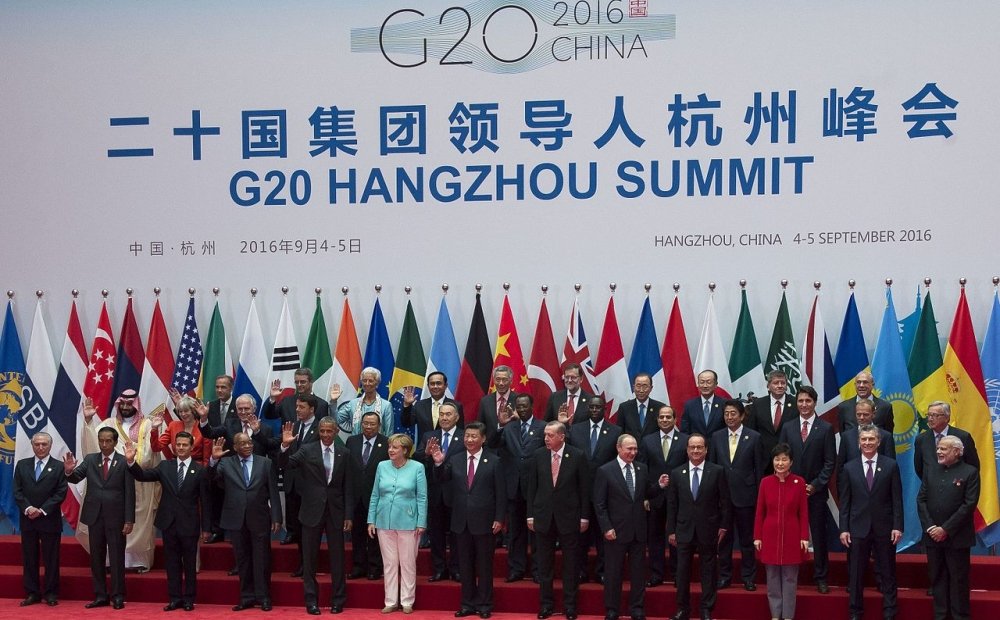Ground Truth Briefing: What is the Future of Global Trade under President-elect Donald Trump?

The Takeaways
by Matt Starling
The current outlook for U.S.-led multilateral trade deals appears unfavorable, but the Trump administration may pursue bilateral agreements with countries in key regions. What expectations do Europe and Japan have in their future trade relations with the United States, and what is the future for global trade deals? On January 5th, 2017 the Wilson Center’s Shihoko Goto, Senior Associate for Northeast Asia, Asia Program, moderated the discussion. She was joined by Michelle Egan, Fellow, Wilson Center; Meg Lundsager, Public Policy Fellow, Wilson Center; Shawn Donnan, World Trade Editor, Financial Times; Yorizumi Watanabe, Professor, Faculty of Policy Management, Graduate School of Media and Governance, Keio University, Tokyo.
Shihoko Goto began the discussion by noting that trade had featured prominently in the 2016 presidential campaign. Since his victory, President-elect Trump has continued to highlight the need for the United States to reconsider its trade policy. “While personnel decisions and not synonymous with policy prescriptions, it’s now clear that Trump is eager to adhere to campaign promises on challenging the status quo on U.S. trade.” Goto emphasized that it is now highly unlikely that a Trump administration will move forward with ratifying the Trans-Pacific Partnership agreement and may also speed up attempts to renegotiate NAFTA as well.
When focusing on what an overall Trump administration’s trade vision may look like, Shawn Donnan observed that the first rule one should observe in Washington now is one of humility after the surprising Trump victory. Donnan warned that the public and policy makers should pay close attention to Trump’s statements but refrain from overreacting to every tweet the President-elect sends out. Donnan stated, “The one fundamental change we can’t avoid is things will be very different when it comes to trade policy here in the United States. We are going from an Obama administration that really wanted to reshape to global trading system with an emphasis on mega-regional trade deals to a new administration that is more about restoring what they perceive to be the past greatness of the U.S. economy, particularly manufacturing.”
Donnan pointed out a key shift with the new administration will be moving from one of negotiating ambitious trade agreements to one of enforcing rules. That means more focus on trade cases, trade remedies like anti-dumping cases, and potentially some unexpected or unorthodox responses such as threatening 35% tariffs if a company offshores jobs. Donnan anticipated more of the same from the Trump administration on enforcement but a higher level of volume. He noted that the Obama team was very active in trade enforcement but took a much more low key position when announcing WTO cases. With Trump, Donnan believes these will be more highly publicized events at the White House with greater emphasis on “nationalized messaging” of trade. Donnan also underscored that Trump may be more willing to violate and push back against WTO rules, as well as gain support among some Democrats with a common vision on trade.
Yorizumi Watanabe highlighted that Japanese Prime Minster Abe was still holding firm to hope that the United States may ratify the Trans-Pacific Partnership in the future. He noted that the Japanese legislature ratified the treaty in late 2016. Watanabe noted that if the Trump administration finalizes its decision to withdraw from the Tran-Pacific Partnership, the Japanese government will be extremely disappointed, along with the entire Japanese business community. Watanabe stated that, “The importance of TPP in not just on free trade, it’s also a geopolitical pact. I would deem TPP also a security pact which provides a very stable platform for the U.S. and Japan to expand trade across the Asia-Pacific. Withdrawing from the pact would be detrimental, not only to the region but to the rest of the world.”
Watanabe observed that while the Doha Round in WTO negotiations stalled in many areas, TPP would actually address many of these issues. He warns this would be a missed opportunity for the United States and Japan if the treaty was not ratified by President-elect Trump. Also, Watanabe suggested that it would harm key U.S economic sectors such as agriculture. Outside of NAFTA nations, Japan is one of the United States largest importers of products such as beef and wine. While a bilateral trade deal between the U.S. and Japan remains possible, Watanabe stressed that this is a possibility but TPP has much more dynamism, involving twelve countries, 37% of world GDP and 30% of world trade. Watanabe emphasized that TPP would be optimum for both the Japanese and the United States.
Focusing on the view from Europe and the prospects of the Transatlantic Trade and Investment Partnership (T-TIP) ratification, Michelle Egan highlighted that while Trump hasn’t focused on the agreement as much as TTP, prospects are dim. Egan noted that T-TIP could be considered a bilateral agreement but you would need twenty-eight European states to ratify and this is a much more difficult prospect. T-TIP is still constrained by numerous issues among European states after three years of negotiations. Egan states that, “We are talking as if the main player in the United States, but T-TIP is very contentious in Europe and they are under many legal contraints in terms of its own ratification process. It would be very difficult to negotiate in the first place.”
Egan also observed that, from the European perspective, there are five areas of common concern with the new Trump administration. One is China and its market economy status with less transparency than hoped. Also, modernizing free trade agreements, regulatory reform such as environment and energy regulation, taxing issues with multinationals such as the Apple Inc. case, and digital issues such as the EU data privacy shield. Egan was hopeful that, while many areas for concern remain by Europeans toward Trump trade policies, there are also areas that they can have common approaches.
Meg Lundsager concluded the discussion by examining issues surrounding currency manipulation. Given how much this was an issue in the campaign, Lundsager expected action taken early in the administration, noting that Trump has wide latitude in naming manipulators. Lundsager focused on the overall global economic picture by highlighting the strength of the U.S. dollar, due in part to U.S. Federal Reserve actions, making imports cheaper and exports more expensive. Lundsager stressed that “other nations’ currencies are depreciating, not because they are manipulating them but because capital is flowing out. Central Banks are running down their foreign exchange reserves to prevent their currencies from dropping any further.” China has been taking this approach, as well as tightening foreign exchange controls, making it harder for people and corporations to move money out of the country. “This is not the type of manipulation that is harmful to the U.S., it is helpful for the U.S. to keep the Yuan from falling any further.”
Lundsager expects the U.S. trade deficit to get worse and stresses the United States should be doing everything it can to encourage stronger global growth. She noted, “With European growth very slow, Japanese growth increasing but still low, China slowing down, and hits on emerging market economies, the focus has to be on getting more countries to contribute more to global growth.”
Speakers

Professor and Jean Monnet Chair ad personam, School of International Service, American University

Former U.S. Executive Director and Alternate Executive Director, International Monetary Fund

Hosted By

Indo-Pacific Program
The Indo-Pacific Program promotes policy debate and intellectual discussions on US interests in the Asia-Pacific as well as political, economic, security, and social issues relating to the world’s most populous and economically dynamic region. Read more


Global Europe Program
The Global Europe Program is focused on Europe’s capabilities, and how it engages on critical global issues. We investigate European approaches to critical global issues. We examine Europe’s relations with Russia and Eurasia, China and the Indo-Pacific, the Middle East and Africa. Our initiatives include “Ukraine in Europe”—an examination of what it will take to make Ukraine’s European future a reality. But we also examine the role of NATO, the European Union and the OSCE, Europe’s energy security, transatlantic trade disputes, and challenges to democracy. The Global Europe Program’s staff, scholars-in-residence, and Global Fellows participate in seminars, policy study groups, and international conferences to provide analytical recommendations to policy makers and the media. Read more
